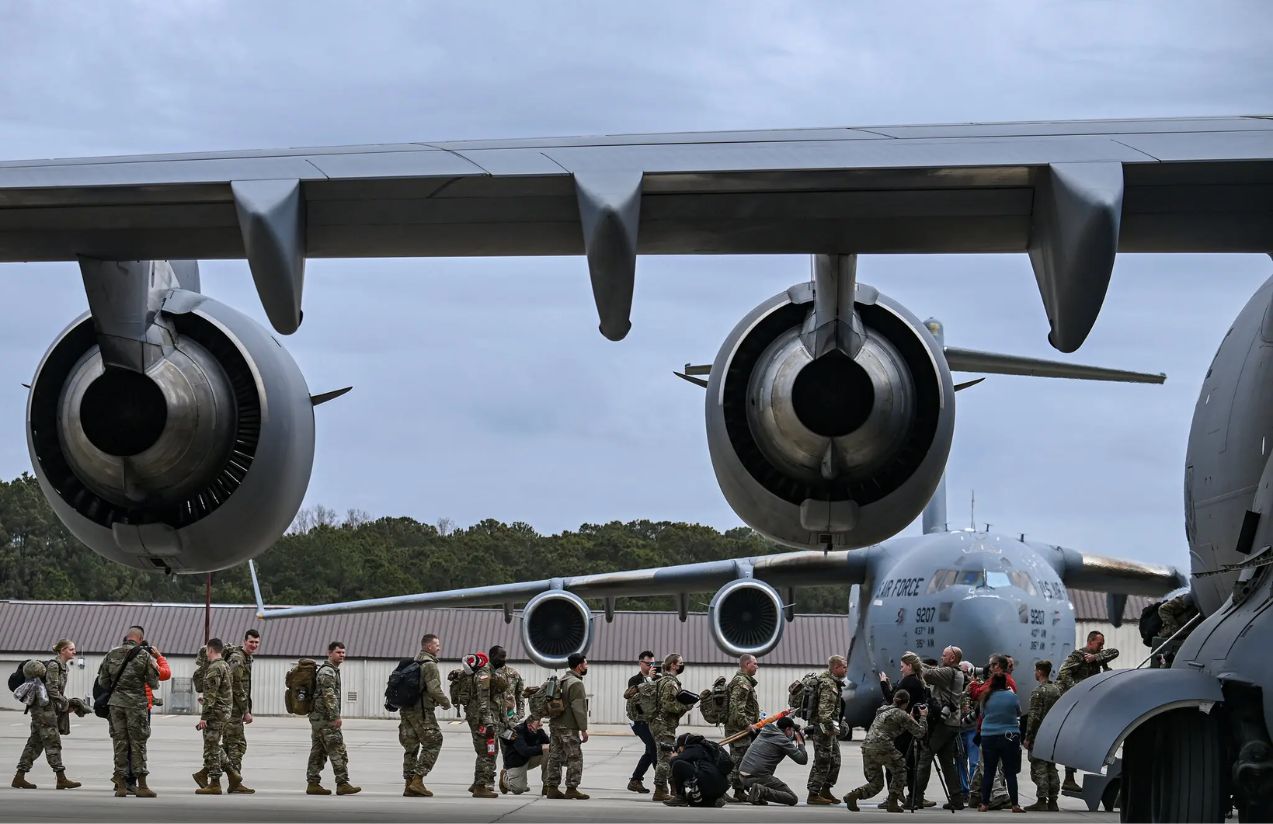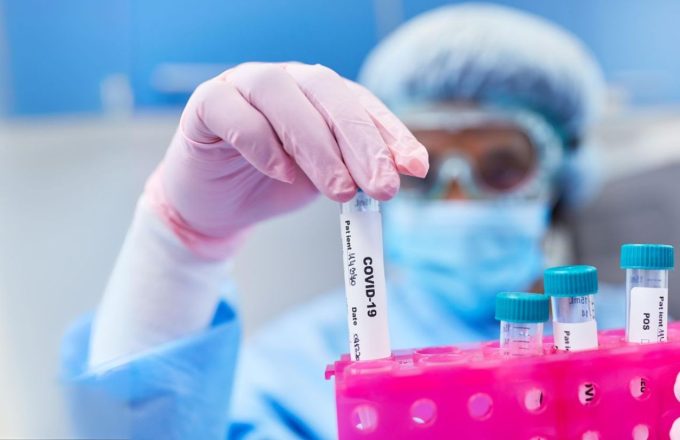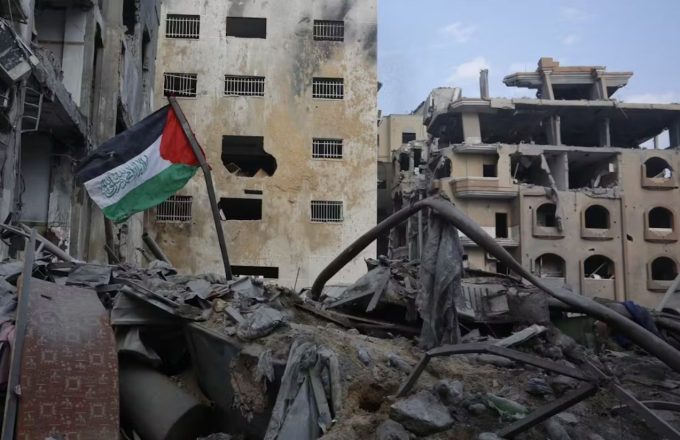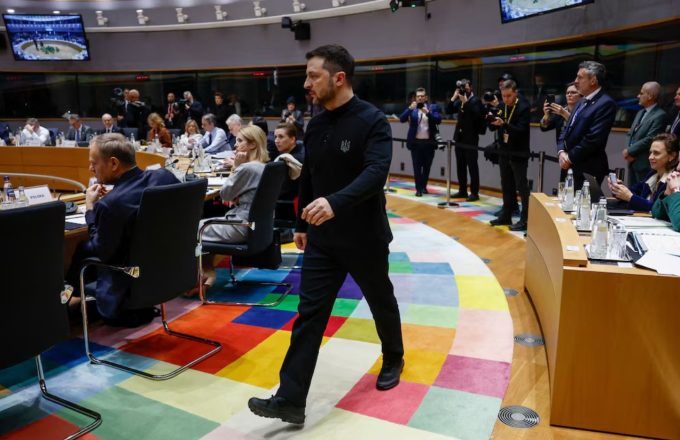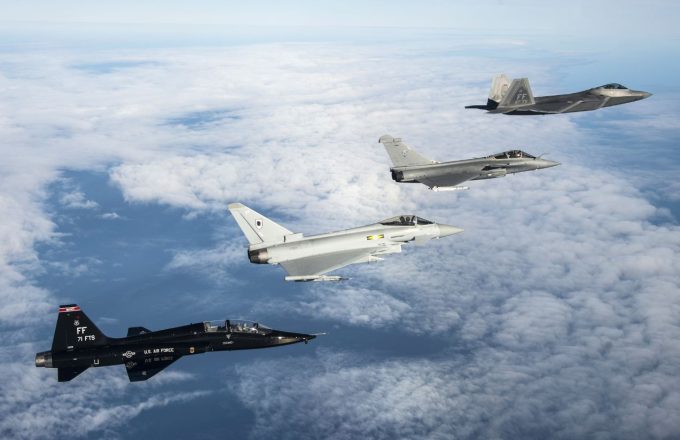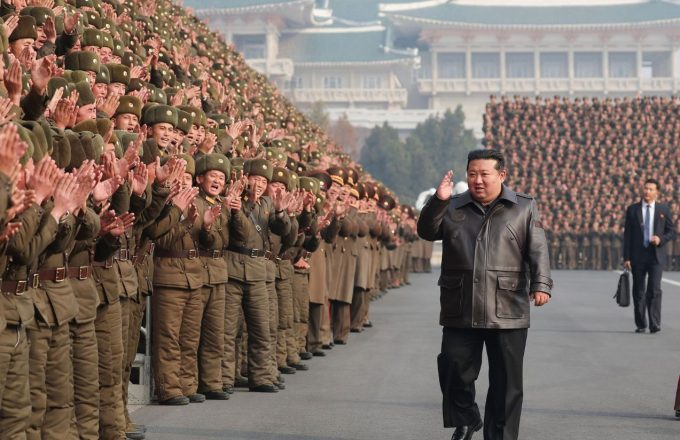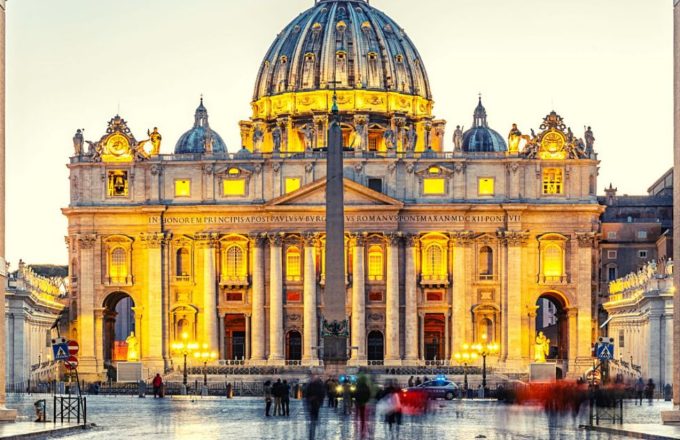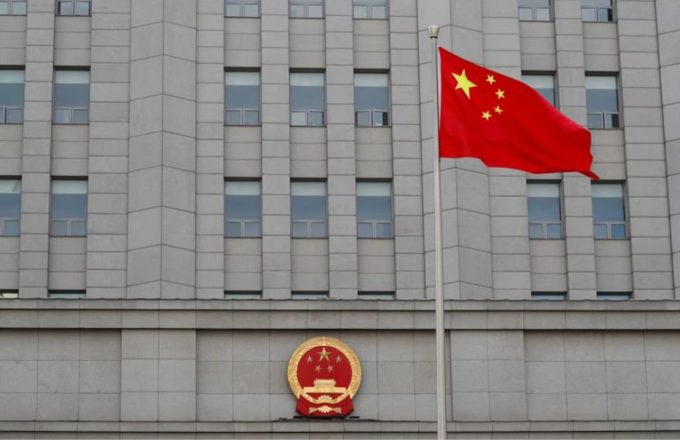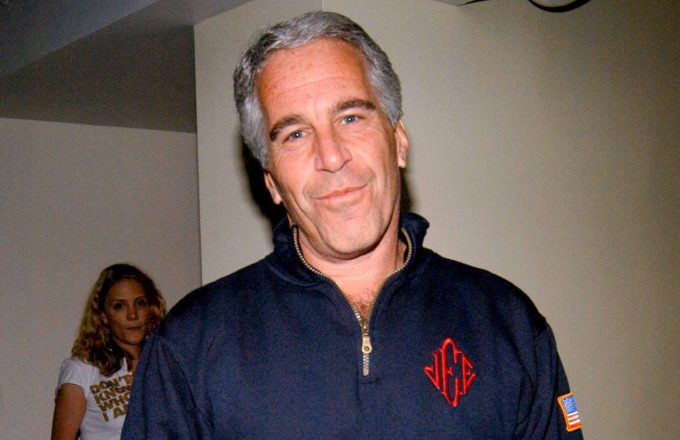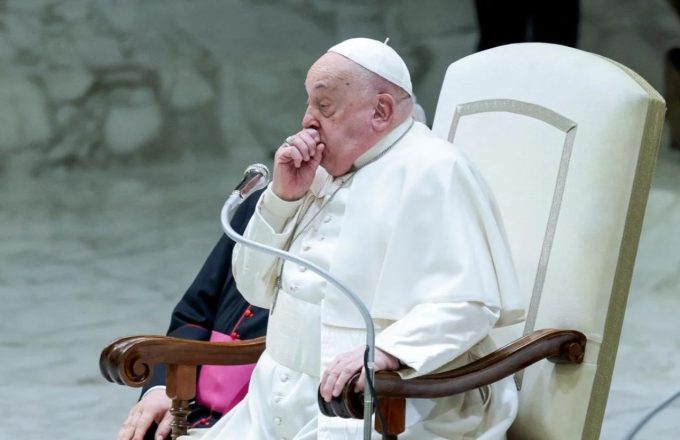President Donald Trump was barely mentioned during a meeting between Ukrainian President Volodymyr Zelensky and 13 Western leaders who visited Kyiv on Monday to mark the third anniversary of Russia’s full-scale invasion of Ukraine.
However, his presence was felt everywhere—in the subtle criticisms directed at him, in the way European leaders spoke of increased aid to Ukraine, and in their insistence on Ukrainian sovereignty, even as Trump’s officials have suggested reducing U.S. support for Kyiv and scaling back troop presence in Europe.
On this somber anniversary of the invasion, European leaders and other Western allies arrived in Kyiv to show unwavering support and pledge more financial and military assistance to Ukraine. Ursula von der Leyen, President of the European Commission, the executive branch of the European Union (EU), emphasized the vital importance of strengthening Ukraine’s defenses and energy infrastructure, warning against retreating now.
“Autocrats around the world are watching very closely,” she said.
Monday’s show of solidarity comes at a critical moment for Europe. For three years, the United States has been one of Ukraine’s most significant backers—diplomatically, financially, and militarily—rallying allies in the same leadership role it has held since World War II.
But Trump is poised to shake things up—or at least, he threatens to.
Last week, he stunned European officials by appearing to blame Ukraine’s leadership for Russia’s invasion. He called Zelensky a “dictator without elections” and has moved closer to Russian President Vladimir Putin, initiating peace talks that Ukraine has not been involved in.
On Monday, Trump claimed that the fighting could end “within weeks” and hinted at a possible visit to Moscow this spring. He reiterated his demand that Ukraine surrender billions of dollars in mining rights. Standing beside French President Emmanuel Macron, Trump refused to label Putin a dictator, even though he had used that term for Zelensky just a week earlier.
Meanwhile, the U.S. angered European allies by voting against a UN General Assembly resolution that condemned Russia’s aggression and called for the withdrawal of Russian troops from Ukraine. Instead, the U.S. resolution simply called for an end to the war.
Fearing that Trump might drastically cut U.S. aid to Ukraine, Zelensky has been working to strengthen European support. European leaders have also been scrambling to develop a plan to compensate for any shift in U.S. commitment.
As visiting leaders gathered in Kyiv on Monday, European foreign ministers convened in Brussels to discuss the size of their next aid package for Ukraine. Those discussions could lead to a package worth over €20 billion, according to two sources familiar with the deliberations who spoke on condition of anonymity. Kaja Kallas, the EU’s top diplomat, stated in a press conference that final decisions would be made on March 6, during a special meeting of European leaders.
The ministers also approved a new sanctions package against Russia, targeting energy, trade, transportation, infrastructure, and financial services. This move could strain relations with the White House, as Trump appears to be shifting U.S. policy on Russia, aiming for a quick resolution to the conflict.
“I feel a different sense of urgency, especially after what we all witnessed in Munich a few weeks ago,” said Lars Løkke Rasmussen, Denmark’s Foreign Minister, referring to recent remarks by U.S. Vice President JD Vance, who criticized Europe during a security conference. “It’s not just about Ukraine. It’s about the entire global order.”
So far, the U.S. has spent approximately $119 billion on the Ukraine war, with $67 billion allocated to military expenses, according to data from the Kiel Institute for the World Economy. Meanwhile, Europe has provided $65 billion in military aid—slightly less—but has contributed $21 billion more than the U.S. in humanitarian and financial assistance.
If the U.S. were to significantly scale back its support for Europe and NATO, replacing it would be costly and difficult, requiring both military personnel and advanced weaponry. Even if Europe ordered the necessary military equipment now, it could take up to a decade to arrive.
But Europe’s own capabilities were in focus on Monday, because while leaders are concerned about Ukraine, they are also deeply worried about their own security, which is closely tied to this war.
Trump has argued that the war’s outcome matters far more to Europe than to the U.S., which he describes as being separated from the conflict by a “big, beautiful ocean”.
It remains uncertain whether the U.S. will cut military spending in Europe, but European leaders are increasingly concerned that the U.S. might withdraw thousands of troops, as recently suggested by Defense Secretary Pete Hegseth. Such a move could leave Europe—especially NATO’s smaller members—vulnerable to Russian aggression.
In recent years, European nations have increased their defense spending, but they are still far from achieving the military capabilities needed to operate independently of the U.S.
European leaders insist they are willing to meet Trump’s demands for greater European responsibility in defense. Friedrich Merz, expected to become Germany’s next chancellor, stated after his victory in Sunday’s elections that his “top priority” would be to strengthen Europe as quickly as possible.
For now, however, European leaders are doing everything possible to keep the U.S. engaged—both in terms of joint military concerns and Ukraine.
Macron visited Washington on Monday, urging Trump not to “be weak” in front of Putin. He has also floated the idea of sending European troops to Ukraine as part of a post-war agreement, a proposal that was initially dismissed by many NATO members but is now gaining traction.
British Prime Minister Keir Starmer, set to visit the White House later this week, has expressed willingness to deploy troops for a peacekeeping initiative, but only if the U.S. serves as a backing force.
Trump, however, has stated there will be no U.S. troops on the ground in Ukraine.
Meanwhile, Putin has made it clear he will not accept European soldiers in Ukraine under any peace deal.
Recent talks between Trump officials and Russian representatives about ending the war have sparked concerns that Ukraine could be excluded from the negotiations.
On Monday in Kyiv, visiting European leaders—including two dozen who joined virtually—echoed Zelensky’s core message: there can be no peace without Ukraine, and no peace without solid security guarantees for Ukraine.
They referred to Zelensky by his first name, “Volodymyr,” praised his courage, and many declared “Slava Ukraini” (Glory to Ukraine), the battle cry of Ukraine’s armed forces. Canadian Prime Minister Justin Trudeau called Zelensky a “properly elected democratic leader”, a sharp response to Trump’s recent insults.
And António Costa, President of the European Council, stated that only Ukraine can decide when conditions are right to begin negotiations.


